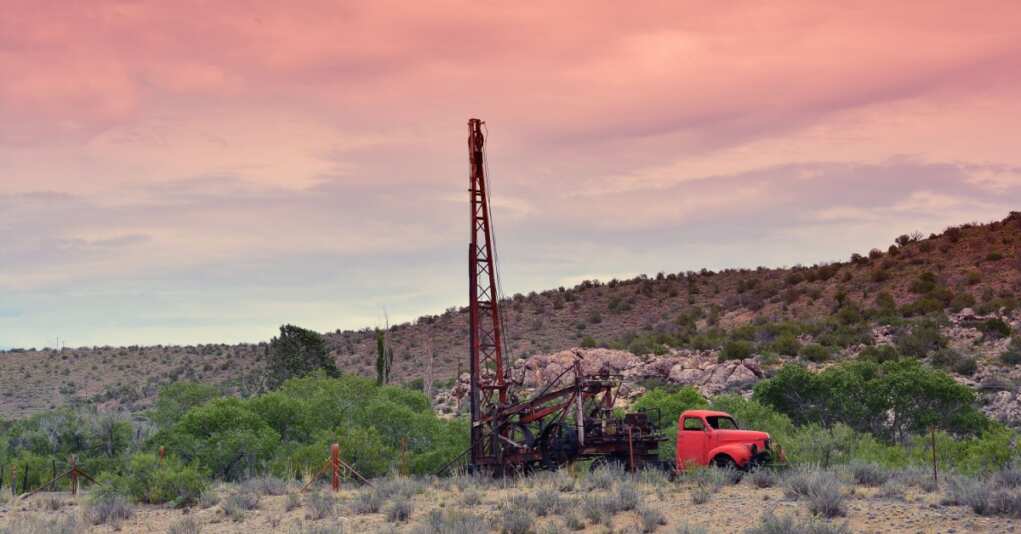Arizona Stands Up to Saudi Water Grab—Finally

Arizona has decided enough is enough. In a bold move, Attorney General Kris Mayes is taking legal action against a Saudi company accused of pumping excessive groundwater in La Paz County, signaling a long-overdue shift in priorities. For years, foreign interests have been quietly exploiting America’s natural resources while Americans bore the brunt of the consequences. Now, Arizona is drawing a literal line in the sand, sending a powerful message: Our water is not for sale.
How Did We Get Here?
This isn’t just about one lawsuit—it’s about a pattern of exploitation that has gone unchecked for far too long. Saudi companies have been leasing land in Arizona for years, growing alfalfa and other water-intensive crops that they then ship back to feed livestock in their arid homeland. The result? Arizonans are left grappling with depleted water supplies, while foreign entities profit off a resource many Americans consider sacred.
The arrangement, which might sound like a win for “global cooperation” on paper, is anything but. These companies benefit from sweetheart deals that allow them to pump groundwater at virtually no cost, while locals face water restrictions and escalating concerns over the future of their aquifers. It’s the kind of lopsided agreement that leaves everyday Americans shaking their heads in disbelief. Why should the people of Arizona sacrifice their future for the benefit of a foreign power?
Arizona Pushes Back
Attorney General Mayes’ lawsuit represents a significant shift in how Arizona, and perhaps the nation, approaches such issues. The lawsuit alleges that the Saudi company has been extracting water beyond what is permissible under their lease agreements, exploiting a system that’s already under stress. For many Arizonans, this isn’t just about water—it’s about sovereignty and protecting the resources that sustain their communities.
This legal action also highlights the broader issue of foreign ownership and control of American resources. In recent years, foreign entities have bought up farmland and other critical assets across the country, often with little oversight. While this practice has raised alarms, policymakers have been slow to act—until now. Arizona’s stand could inspire other states to reevaluate how they manage their resources and who they allow to control them.
What Critics Will Say
Predictably, there will be those who label this move as isolationist or even xenophobic. But that’s a shallow and misleading critique. This isn’t about race, nationality, or borders—it’s about protecting a resource that’s vital to the survival of Arizona’s communities. It’s about ensuring that water, one of the most precious and finite resources on Earth, is used responsibly and equitably.
The left often speaks about sustainability and climate change, but where are those voices now? Shouldn’t they applaud efforts to prioritize local resources over exploitative practices by foreign corporations? Or does their concern for the environment end when it clashes with their globalist ideals?
A Call for National Awareness
What’s happening in Arizona is part of a much larger issue. Across the country, states are grappling with resource management challenges exacerbated by droughts, climate variability, and growing populations. Meanwhile, foreign interests continue to acquire American farmland and access to critical resources, often without meaningful oversight or accountability. Arizona’s decision to stand up to these practices could serve as a wake-up call for the rest of the nation.
This isn’t just about water; it’s about asserting control over our future. If states don’t take proactive steps to protect their resources, the consequences could be dire—not just for local communities, but for the country as a whole. Arizona’s fight is a reminder that American resources should benefit Americans first.
The Way Forward
Arizona’s bold stance against the Saudi water grab is a critical step in reclaiming control over its natural resources. But this fight is far from over. Other states must follow Arizona’s lead, implementing stricter regulations on foreign ownership and resource extraction. At the same time, lawmakers at the federal level need to address the loopholes that allow these practices to flourish.
This lawsuit is more than a legal battle—it’s a declaration that Arizona values its water, its land, and its people. In a time when the interests of everyday Americans often take a backseat to corporate and foreign agendas, it’s a refreshing reminder that some battles are worth fighting. For Arizona, this is about securing a sustainable future—and it’s about time.

